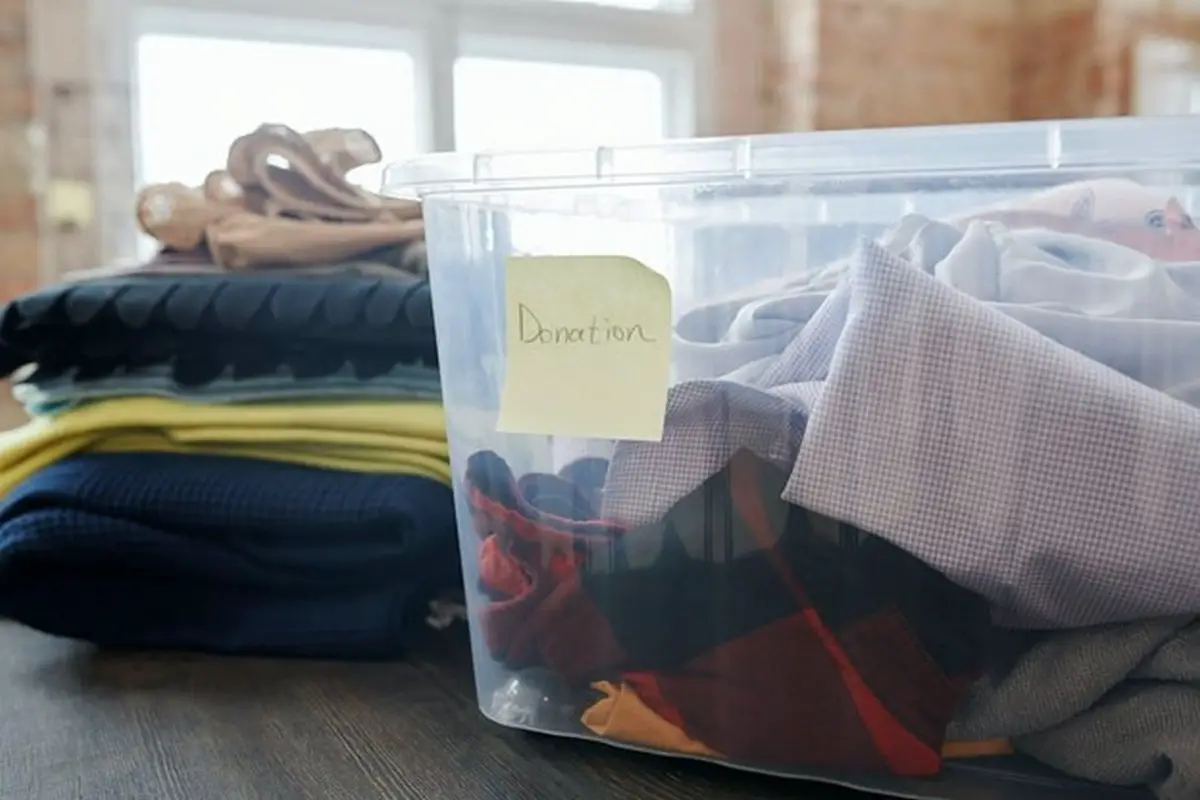How to declutter and donate responsibly, House organize tips, Tidy home advice, Property design guide
How to Declutter and Donate Responsibly
16 January 2024
Whether you are staging your home in preparation for selling it, or simply considering a thorough declutter, there are generally four ways to dispose of items you no longer need or want: by throwing them in the trash, recycling, giving them to someone you know, or by donating them to charity.
Besides recycling, charity donation might sound like one of the most socially responsible ways to remove unwanted items from your home. With services such as easy donation pickup, in some cases you don’t even have to go to the store in order to drop off your items.
Good Intentions vs. Good Quality
While the prospect of a more streamlined closet, a cleaner garage and an overall tidier home (all while donating to charity) sounds appealing, there are some key points to consider when making non-monetary donations: if they’re poor quality, they could create more problems than they solve.
Unusable items such as broken or defunct electronics waste valuable time and resources of charity stores. In particular, clothing presents a major issue: while an estimated 25% of unusable textiles goes to landfill, a further 40% to 50% ends up in countries like Ghana, negatively impacting the local economy and the environment.
Alternatives to Donating Items
As a general rule, if it’s not fit for purpose, don’t donate. However, this doesn’t necessarily mean you have to toss your unwanted items directly into the trash. Besides charity donations, you can also:
- Mend your items yourself or by a specialist if required.
- Upcycle your item by repurposing it; for instance using pallets as garden borders.
- Recycling (check local facilities to see which items they will accept).
- Selling: either on platforms such as eBay, or by holding a yard sale at your home.
That said, if you do intend to donate your items, here are a few do’s and don’ts that could help you to sort through your items and decide what is worth adding to the “charity” pile.
Do:
- Research your charity thoroughly to check they are both registered and reputable.
- Call ahead of time to find out which items will be accepted: stores have varying rules on what you can donate; for example some places do not accept specialty items like mattresses, vehicles or computers.
- It can also help to ask about recalled items or items (such as baby equipment) which no longer meet current safety standards. If you cannot donate these, they may be recyclable.
- Check that any electrical items you donate are fully functioning and safe to use.
- Donate high-end attire such as suits to community programs so that those in need can look and feel smart while attending important (and potentially life-changing) events such as job interviews.
- Donate brand new underwear and socks: Some programs providing clothing to the homeless often have a demand for brand-new undergarments; check with your local charities to find out what they need.
Don’t:
- Donate items such as used underwear, socks (however freshly laundered), bed sheets or towels. In some cases, you can donate old towels, sheets and blankets to pet shelters to be used as bedding.
- Donate threadbare, torn or otherwise damaged clothing. The same applies to anything with stains or unpleasant odors you can’t get rid of. If you can’t sell, mend or donate it, recycling or upcycling are two viable options.
Comments on this guide to How to Declutter and Donate Responsibly article are welcome.
Building Articles
Architecture
Café de Parel on Westerstraat, Amsterdam, The Netherlands
Munich Architecture Walking Tours, Bavaria, Germany

photo : Ulrich Rossmann-Arup
Comments / photos for the How to Declutter and Donate Responsibly page welcome





